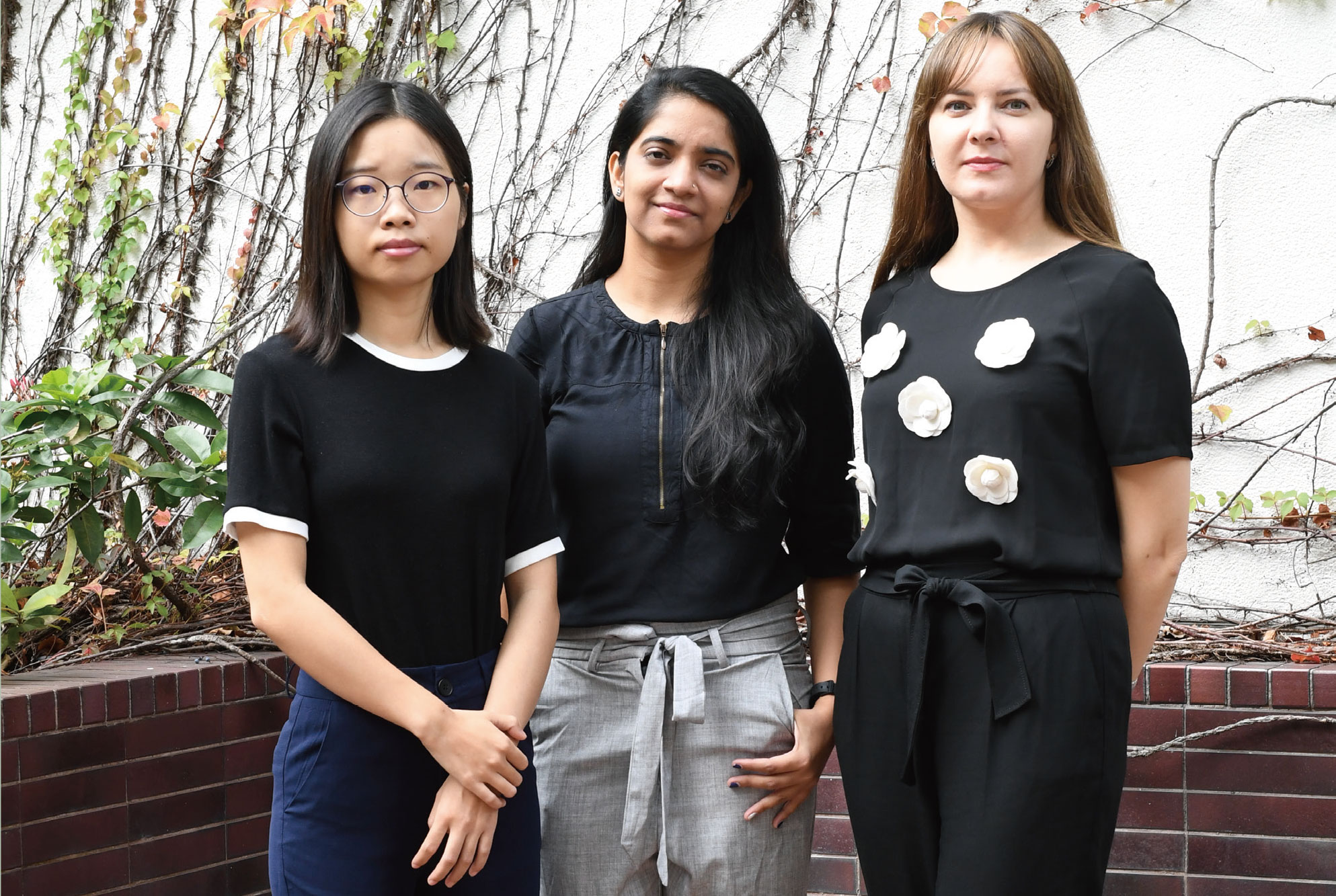
|
Student Research Successes The Graduate School continued to provide training and other opportunities for research postgraduate students to develop essential skills, such as big data analysis and effective writing, and to explore career pathways. The vast majority of students also are offered opportunities for international or Mainland China experiences. |
 |
|
Winners of U21 Graduate Collaborative Research Awards (left to right) Zhou Hui, Kanmani Chandra Rajan and Yulia Nesterova. 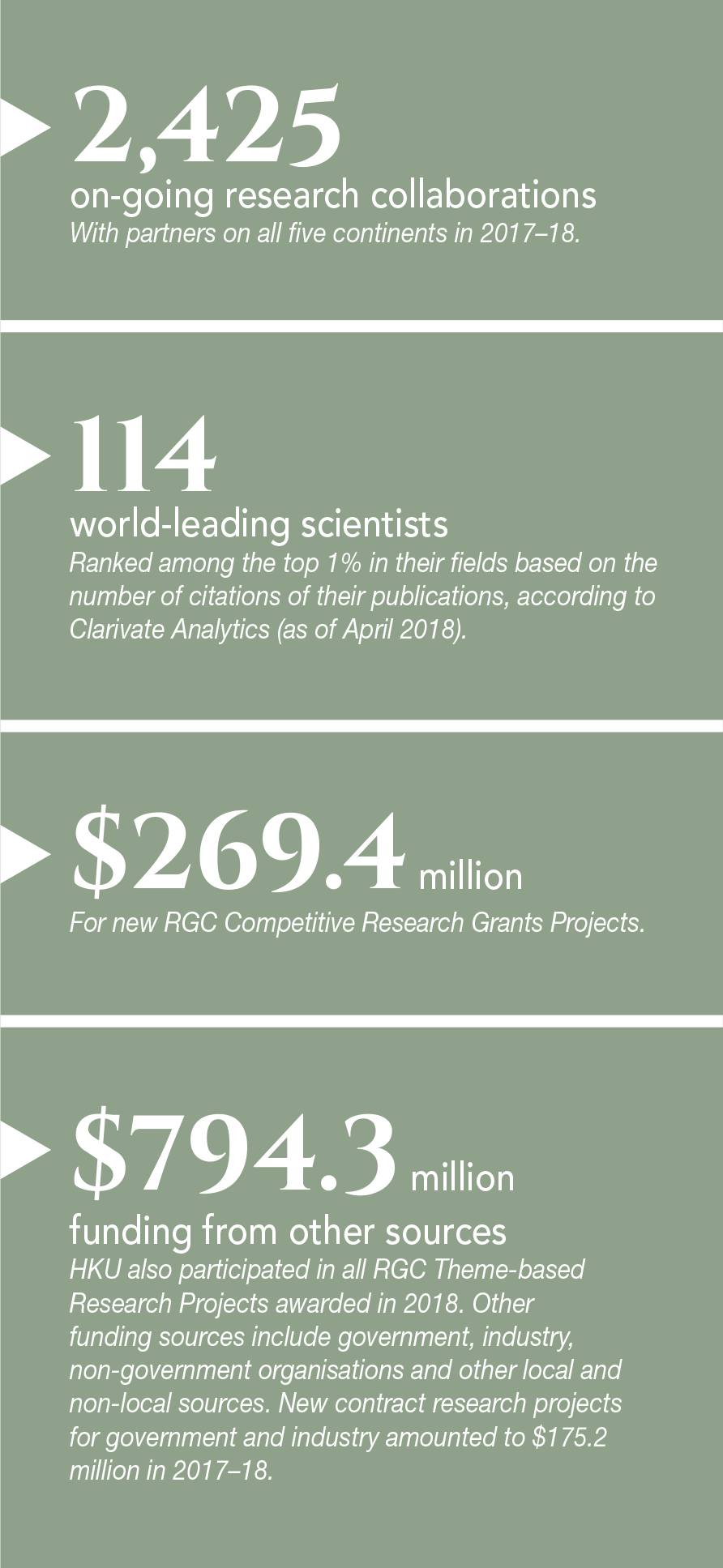
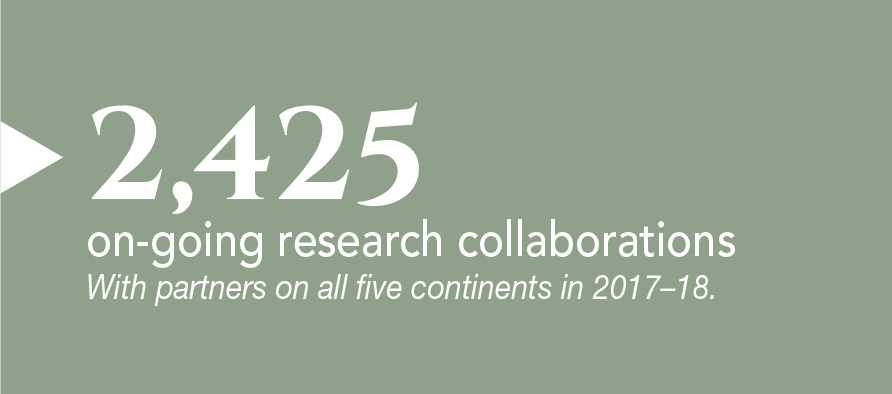
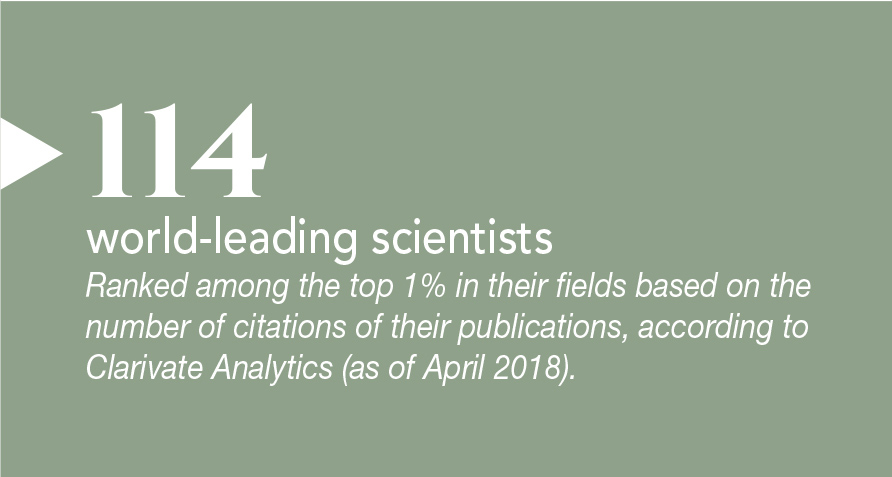
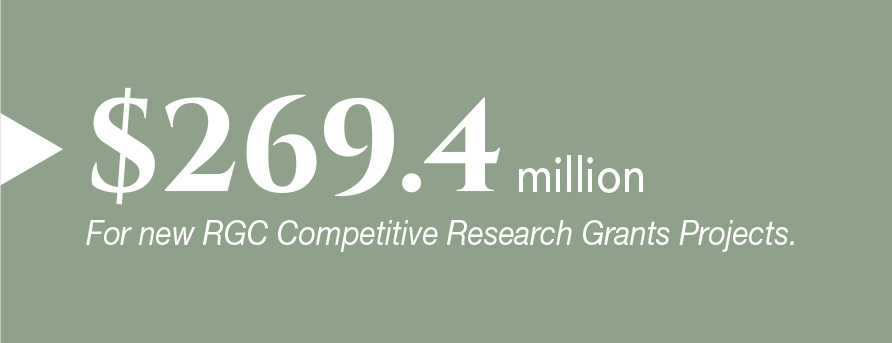
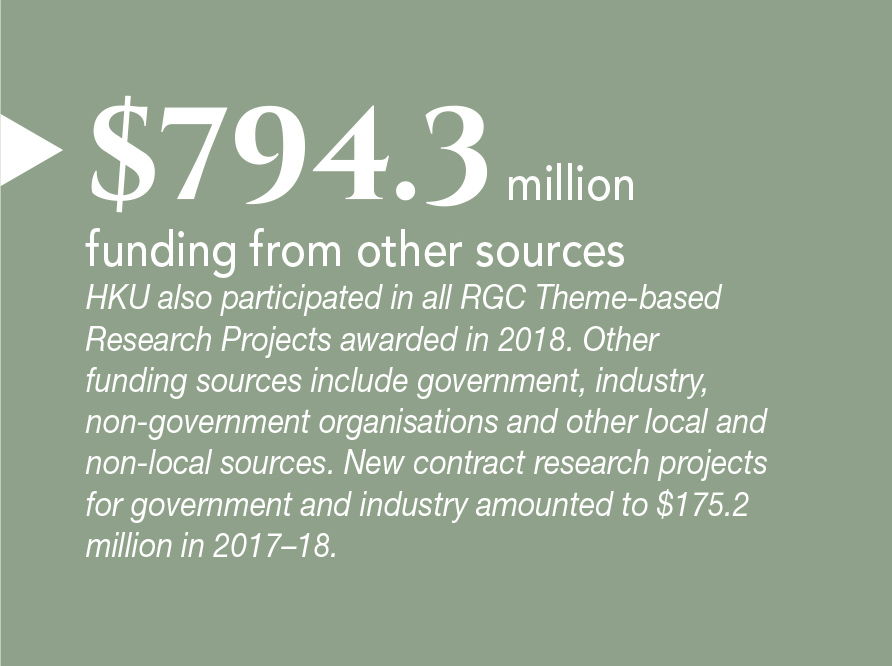
International Collaborations Open up New Opportunities HKU PhD students have made a strong showing in the Universitas 21 Graduate Collaborative Research Awards, through which students from the organisation’s 27 partner institutions around the world are encouraged to work together on research projects. HKU students received three of the six awards for 2017–18 and four of the 14 awards offered in the previous two rounds. Among the recent winners, Yulia Nesterova in education is undertaking a project on teacher perceptions of indigenous learners in Taiwan with students from the University of Melbourne and University of Auckland. “The grant will provide financial support for us to work together. It’s a necessary step to a large-scale project on teaching for reconciliation,” she said. Kanmani Chandra Rajan in biological sciences is investigating Hong Kong oysters as a model for studying the effect of ocean acidification. And Zhou Hui in civil engineering is developing a multi-user, voice-driven navigation system for fire emergency response with students from the University of Auckland and Shanghai Jiaotong University. “This grant will help me to improve my interdisciplinary research and analytical skills and also my communication, teamwork and leadership skills,” she said. Kudos for Undergrad A desire to clarify his understanding about neuroanatomy led final-year MBBS student Lai Hei-ming down a deep path of research that resulted in publication in the prestigious journal Nature Communications and national honours. “I volunteered to work as a part-time honorary research assistant in Professor Wu Wutian’s lab because I was confused about what I had studied and wanted to see the brain circuitry for myself,” he said. Working in the evenings and sometimes through the night, he began to test solutions for tissue clearing, an emerging field that turns tissues transparent and makes their intricate structures visible. One of the more unusual things that inspired him was being served over-cooked eggs – he began to use boiled egg whites to test different chemicals and finally discovered one that could denature tissue proteins, now a key ingredient in an invention by his team called OPTIClear. OPTIClear is expected to have application in testing for a wide range of diseases and was recently awarded a Gold Medal in the 46th International Exhibition of Inventions of Geneva. 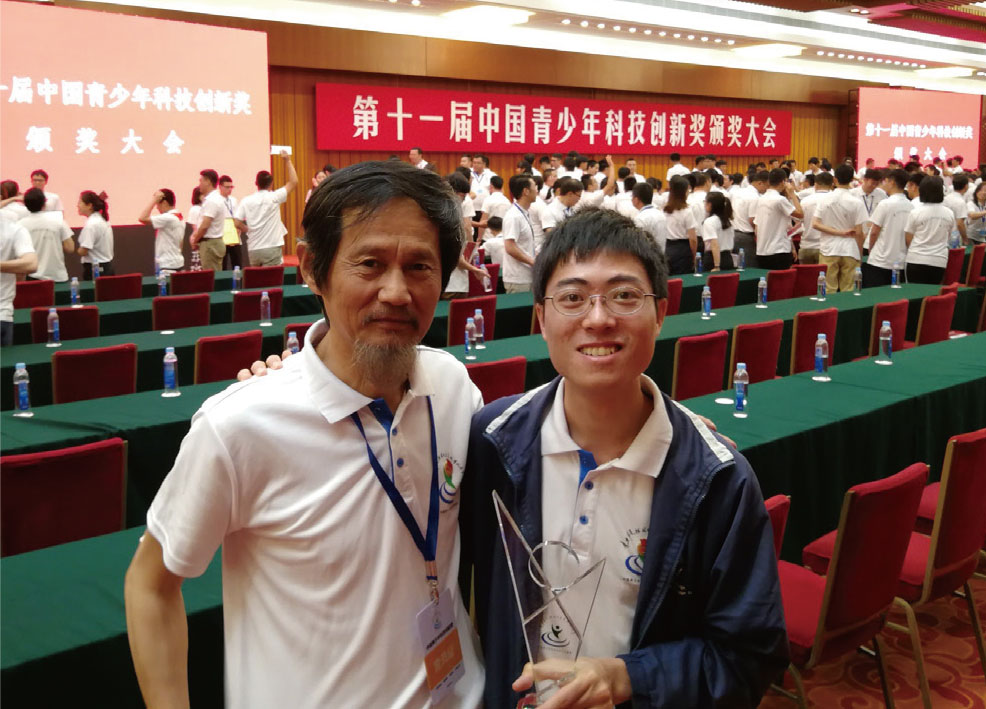
Award-winning researcher Lai Hei-ming (right) with Honorary Professor Wu Wutian. Lai, who graduated in 2018, was lead researcher on the study which also involved researchers from HKU and Imperial College London. In August he was named one of the top 100 young researchers in China in the 11th China Adolescents Science and Technology Innovation Contest. |